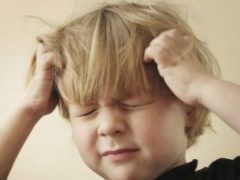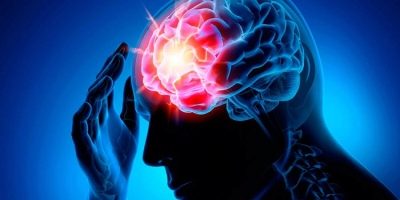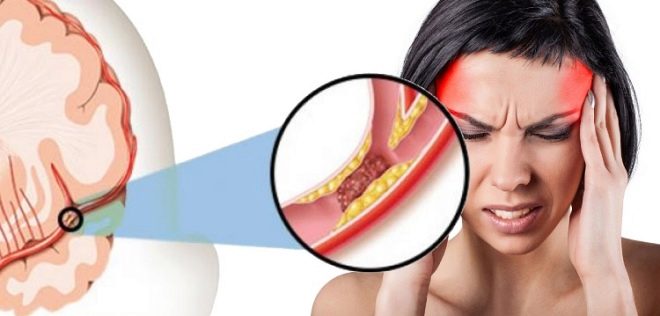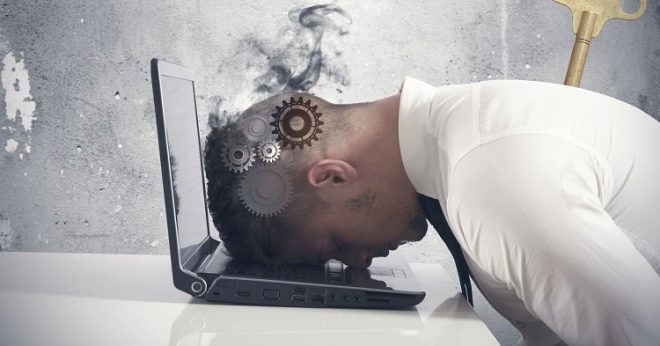Psychosomatics stroke in adults and children
In Russia, three out of a thousand people face a stroke. Almost a quarter of all deaths occur precisely on strokes. Eight out of ten patients who experienced a stroke, then expressed neurological disorders persist. Up to a quarter of these cases are disabilities. Therefore, medicine is doing everything to improve the quality of emergency emergency care for stroke. Psychosomatic medicine is trying to do everything so that a stroke could be avoided altogether.
In this article we will talk about psychosomatic causes.
general information
A stroke is called acute disruption of the blood supply to the brain, which leads to its defeat in a specific focus. A stroke can be both hemorrhagic and associated with oxygen deficiency, that is, ischemic. It is manifested by a sudden feeling of weakness in the arms and legs, an asymmetrical “skewed” face, impaired consciousness, speech, vision, dizziness.
In medicine, there is even such a definition of stroke as vascular catastrophe. Ischemic pathology is also called a cerebral infarction, hemorrhagic stroke - an atraumatic lesion, in which a rupture of the vessel with hemorrhage occurs.
The reasons for this in medicine are considered to be high blood pressure, heart disease and atherosclerosis. The probability of a stroke increases if a person malnourishes, smokes, abuses alcohol, experiences acute stressful states.. The risk of stroke increases in women who take oral contraceptives for a long time. Also, doctors emphasize the presence of a hereditary factor - if direct relatives have dealt with a stroke, the likelihood of such a pathology increases.
If with alcoholism and obesity, which most often provoke ailment, everything is more or less clear, then many questions arise concerning such a reason as severe stress. Evidence-based medicine does not specify which type of stress can lead to brain damage, but psychosomatics knows the answer to this question.
Psychosomatic causes
From the point of view of psychosomatics, the brain is the control center, the main “computer” that controls the whole body, controls everything. On how well this “computer” works, it depends on how healthy and efficient the person is.
Psychoanalysts found out that the most common cause of stroke is the heavy contradiction between the personal will of a person and external circumstancesthat life offers him. It is impossible to resolve these contradictions, besides, people tend to “overload” their brain-computer with a mass of tasks at the same time (“you need to have time”, “you have to do”, “don't forget to stop by”). When task overload becomes transcendental, anyone, even the most powerful, “computer” can hang.
Another one common cause of stroke is hate. Not a petty anger or irritation, but everything that burns everything, total hatredthat a person has for a long time. According to experts, the dislocation of hemorrhage can tell a lot in psychodiagnosis - which of the hemispheres was affected. The right one is “responsible” for spirituality, imaginative thinking, self-identification, emotional sphere. Left - is a mathematical thinking, pragmatic and analytical.
Stroke in children usually takes the form of juvenile, occurring immediately after birth or during childbirth due to acute hypoxia. At an older age, strokes are not too common, because children do not know how to hate much, they still do not overload their brain with tasks too much.
Juvenile stroke is an exception, and the cause must be sought in the psychological mood and mental state of the mother at the time of birth.
Opinion researchers
Writer and psychologist Louise Hay claims that a stroke develops when a person categorically does not agree to change something in himself, despite the fact that life makes it clear to him that it is time for change, that his brain no longer stands. But the stubborn man claims that he would rather die than step over his own principles. As a result, he himself creates this situation.
Canadian researcher Liz Burbo is sure that people who have a stroke have significant difficulties with their own "I", they are in a state of acute conflict with the world and themselves.
Psychotherapist Valery Sinelnikov argues that the basis of the disease are such feelings as jealousy and hatredbut not ordinary, moderate, but literally "paralyzing" a person. Also, the doctor stresses, pathology threatens those who categorically refuse to accept their lives and destiny.
Almost all researchers are inclined to assert that more inflexible people, “stuck” in their old beliefs, who do not want to change them, are more prone to stroke. This explains the prevalence of pathology among people of retirement age.
Treatment
In the case of stroke, it is very important to comprehensively approach treatment issues. It is vital for a person to provide qualified medical assistance, and psychotherapy for the treatment of the soul. Experts recommend to thoroughly deal with the accumulated negative emotions, especially - jealousy, anger, hatred, envy and greed. It is important to analyze a large period of time preceding a stroke, find out what feelings and events it was filled with.
After the problem is found, it is necessary to eliminate it, replacing the negative with the positive. If it is difficult to do it yourself, you should contact an experienced therapist for help in overcoming the disease. Relaxation, positive thinking, gaining a hobby, art therapy classes, walks in the fresh air, normalization of relations with all family members, colleagues and friends will benefit.
A stroke, like most diseases of the cardiovascular, circulatory and nervous systems, can be avoided if even at the stage of the pre-stroke state you pay attention to the changes in the psyche and emotional background with which a person lives.
If you try to live positively constantly, not to overload yourself with excessive duties and experiences, then the risk of stroke can be reduced to the minimum even if there are other risk factors, for example, hereditary.















